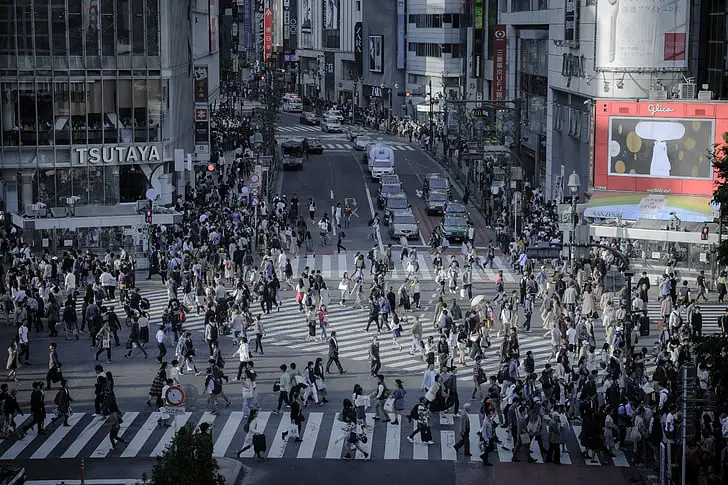
Work Hours in Japan: The Dedicated Working Culture in Japanese Society
Japanese people are globally renowned for their strong work ethic, hard work, and ingenuity. However, the issue of long working hours has overshadowed their brilliant achievements. Well, in this post we look at Japan’s working hours.
Japanese labor laws dictate that employed persons should work for a maximum of 8 hours a day, or 40 hours a week. However, this rarely happens. A 2016 government survey found that over 25% of all Japanese companies demand 80 hours of overtime each month.
The OECD estimates that on average, 22% of all Japanese employees work more than 50 hours a week. Compare this to the United States where only 11% of employees work 50 hours a week. Japan’s working hours are influenced by several factors. A culture of loyalty and hard work in corporate Japan is one of them. The aging Japanese population is also increasing the working hours in the country.
Curious to learn more? Explore the Japanese Culture Guide to explore traditions, society, and everyday life in Japan.
Japanese Work Culture and Its Influence on Work Hours
The long hours associated with Japanese work life are not a coincidence. The idea of hard work is something well enshrined in Japanese work culture. This can be traced back to the early 1920s. Japan, at the time, was experiencing rapid industrialization and militarization. Under the slogan “Fukoku kyōhei”, the country significantly expanded its industries and military. Soon, it emerged as a major global power.
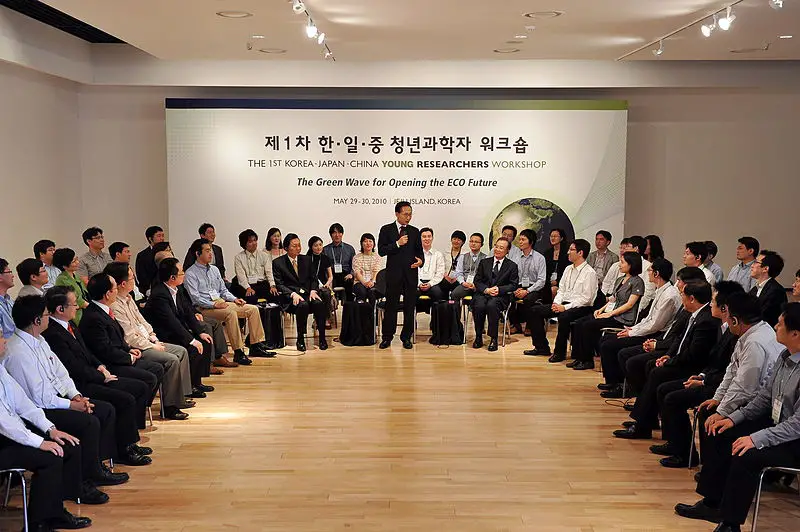
This dedicated work ethic continued even after the Second World War. Japan was devastated by the war. The nuclear attacks in Hiroshima and Nagasaki led to its surrender. The country was faced with the unprecedented challenge of rebuilding its economy from the ashes. Japan also had to pay war reparations to the Western Allies. This meant that it had to put a huge percentage of its population at work.
The country also had a very robust military-industrial complex that was used to support the war effort. There was already a culture of organized production too. As you can imagine, the state tapped into this manufacturing history to rebuild the nation. In the 1960s, Japanese companies were competing at the global front. They went head-on with major western corporations and won. Many in Japanese society felt that working for such prestigious companies is the true mark of Japanese excellence.
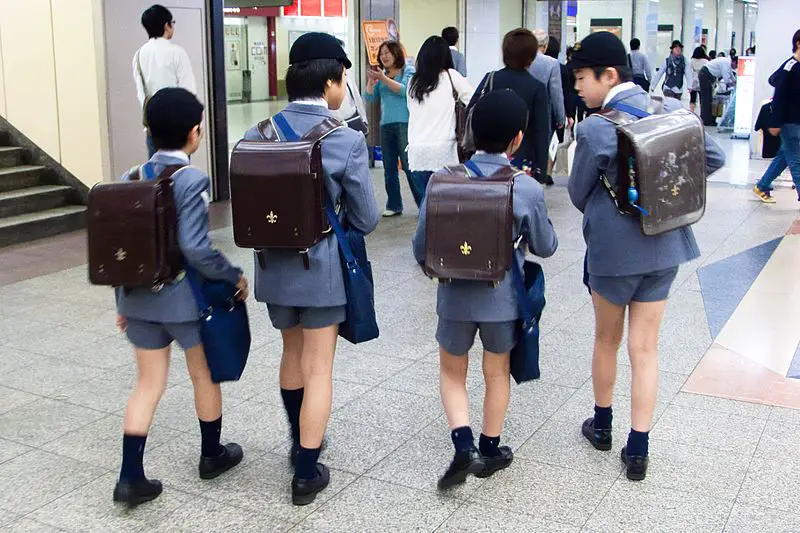
Children were raised to believe that the ultimate goal is to become a Salaryman. This is a colloquial local term used in Japan. It refers to white-collar workers who show exemplary loyalty and dedication to the corporations they work for. The value proposition was very simple. The company offers you lifetime employment. And what they expect in return is loyalty and hard work.
Japan’s Corporate Culture and its Effects on Working Hours
There are several factors that promote hard work and dedication in the workplace. These factors are fully enshrined in Japanese workplace culture. For example, taking leave is frowned upon in Japanese corporate culture. Even if it’s just to watch these popular sports in Japan.
Some studies also show that Japanese employees rarely take vacation days. One survey, published by Expedia, captures this very well. It notes that 63% of employees who take vacation days feel guilty about it. Working long hours and harder than anyone else is a source of pride in Japan. Waking up at 2 A.M. to be in the office 2 hours earlier is normal. Working five extra hours of overtime is just the typical day for a Japanese salaryman.
It is also considered impolite to leave the office before your boss. As you can imagine, many workers don’t. Besides, there is no Japanese employee who wants to leave the office first. If they have worked the 8 hours required, they will do overtime. Japanese employees always want to give more than is required of them.
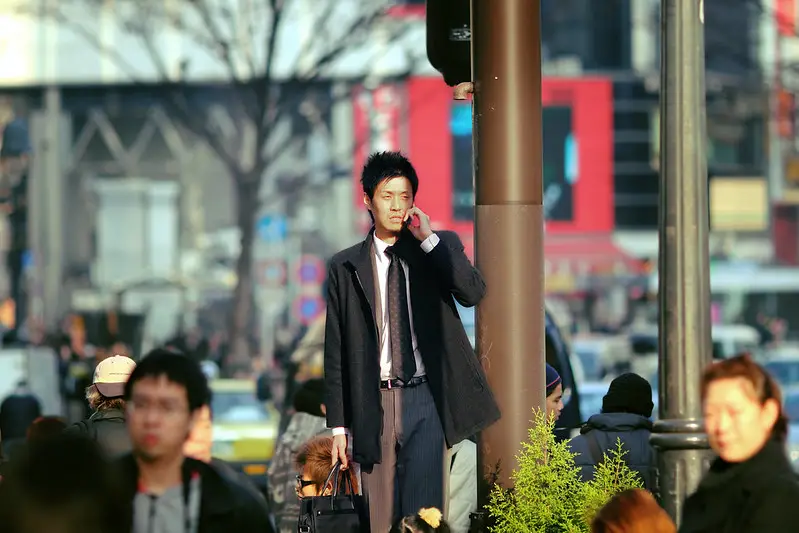
They also feel inspired to deliver. Japan’s conference rooms are used to report progress. In the west, conference rooms are used for discussions on the way forward. This says a lot about Japan’s dedication to delivering results.
How the Collectivist Hierarchical Japanese Society Affects Work Hours
Japanese society is collectivist and hierarchical. Western societies on the other hand tend to be individualistic and non-hierarchical. This simply means that Japanese people respect hierarchy. They also tend to believe in the collective benefit of the group. Western societies focus more on the benefits of the individual. These social norms have also permeated into the working culture in the country.
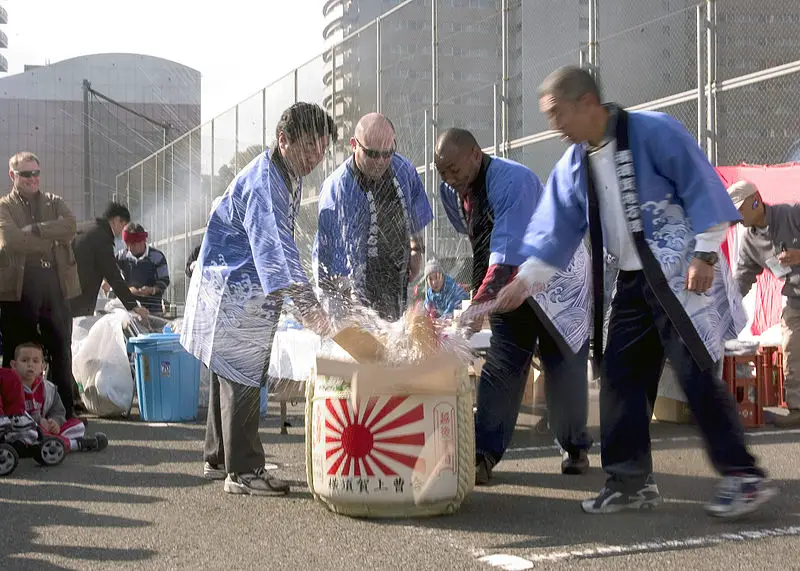
For instance, if an employee takes a paid vacation, they would feel they are abandoning their roles. Most believe they are burdening their co-workers for their own individual goals. Remember every individual worker in Japan contributes to the collective good of their colleagues. This, therefore, means that they will always do their part.
Nonetheless, Prime Minister Shinzo Abe has made it his number one priority to influence changes in Japanese work life. So far, his government is instituting policies to address long overtime hours and proper work-life balance.
The Origins of Japanese Workplace Dedication
A lot of people in the west have a somewhat negative perception of Japanese work culture. It is believed that Japanese people overwork. To some extent this is true. Traditionally, people in Japan have always worked long hours. The rise of the Japanese work ethic can be traced back to the 1920s. During this period, Japanese companies were already competing in the global marketplace with the US, the UK, and others.

Japan wanted to dominate global commerce. The country tapped its vast workforce to build a diversified economy. Large corporations were actively and simultaneously recruiting talented young graduates. This was done all over the country.
This tradition is known locally as Shinsotsu-Ikkatsu-Saiyō. In essence, Japanese corporations simply recruit massive numbers of freshly graduated workers. They then place them in various positions, all at the same time.
This tradition continued for ages. Eventually, employment at these large corporations became a prestigious thing. Children from middle-class Japanese families in the 1960s aspired to work for these companies. The education system in Japan became brutally competitive too. Young people just tried to position themselves to join the Japanese corporate world. And when they did, they worked there for life. They also spent a big portion of their time in the office.
The Evolution of Working Hours in Japan over The Years
Working hours in Japan have changed significantly in recent decades. In 1987, employees worked an average of 46 hours a week. Those employed by large corporations also had a modified workweek. They worked for five days a week and an extra two Sundays each month. At the time, large corporations traditionally offered lower working hours. For instance, a Japanese national employed by a small business in the 80s worked for six out of seven days a week.
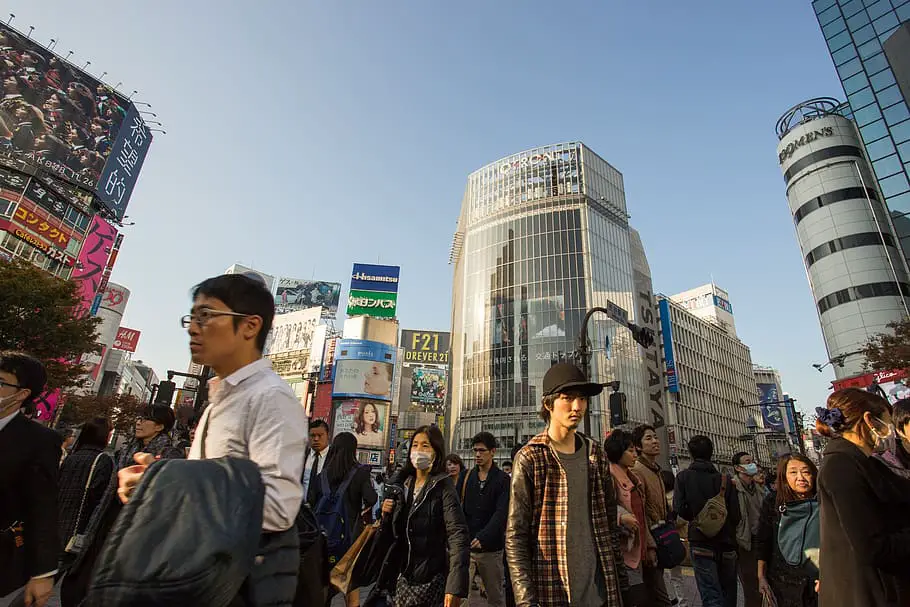
Japan was significantly criticized in the global community for long working hours in the 80s. Before labor reforms started in the country, an average Japanese worker would work for 2, 097 hours a year. This was way higher compared to other developed countries. In France, the average employee worked 1702 hours a year. In the US, average yearly work hours stood at 1828.
How Workplace Reforms Changed Working Hours
Japan started to reform its labor market in the late 1980s. Labor unions in the country issued many demands. But getting hours reduced was key. Well, eventually some progress was made. By 1995, the average Japanese employee worked an average of 1, 884 hours a year. This was relatively low compared to the 2, 097 recorded a decade before.
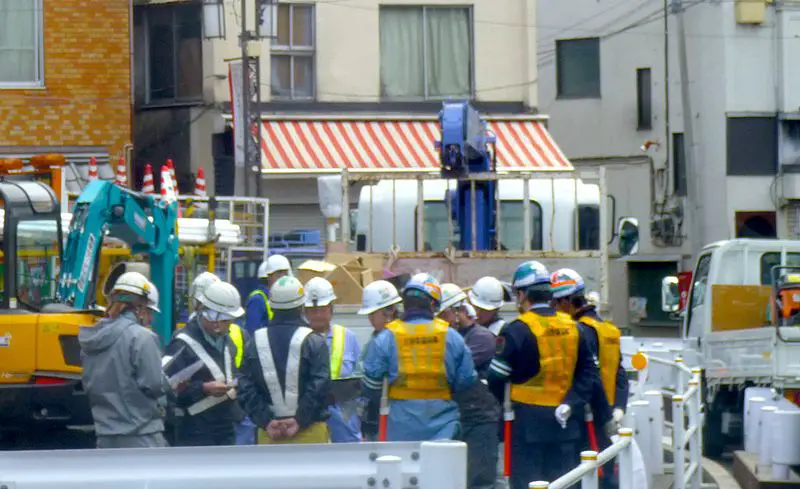
These labor reforms continued to affect Japanese work life over the next decade. As we reached 2009, average annual work hours had reduced to 1714. This is in line with most developed countries in the West. Through comprehensive labor reforms, Japan reduced the average workweek to about 35 hours. It has never been lower than that.
Aging and Working Hours in Japan
The gains made between 1995 and 2009 in shortening the workweek were brilliant. But they have been reversed in the last ten years. This is mostly because of the Japanese aging population. It is estimated that over 26 % of Japan’s population is 65 years and above. The percentage of Japanese nationals above 65 years has also expanded four times in the last 40 years.

The workforce in Japan is, therefore, shrinking considerably as people get older. New predictions by the country’s Ministry of Health estimate that the total workforce in Japan will shrink by 20% over the next 20 years.
13 million Japanese workers will no longer be available for work by 2040.
A declining labor force means more people need to work for longer hours. They have to meet the labor demands in the country. As a result, average weekly working hours have shot up. The workweek had 35 hours in 2009 but a decade later, it’s well over 50 hours.
How the Government Is Addressing the Shrinking Workforce
The Japanese government is implementing several measures to address the declining workforce. First, the state is expanding visas for migrant workers who wish to come to Japan. Data from the Ministry Of Justice shows that labor migration has been driving Japanese immigration in recent years. In 2015 for example, Japan had over 2.23 million foreign nationals. Most of them are working as technical workers and interns.
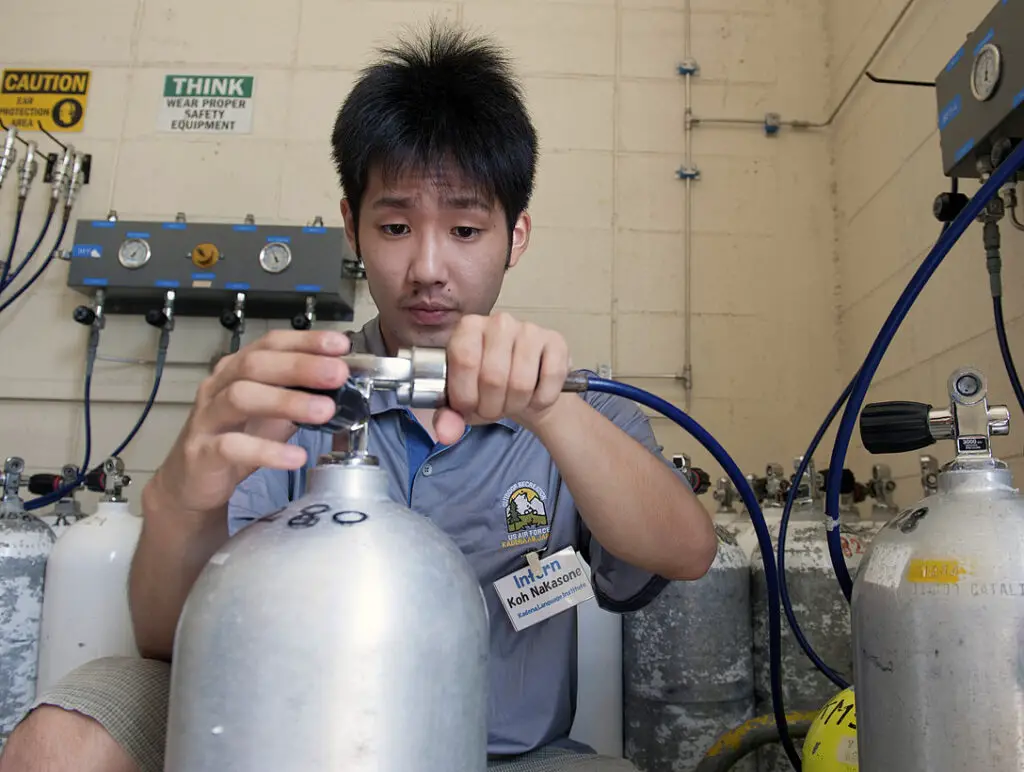
Annual labor market participation in Japan is up by an average of 1.7%. The number of people working is on the rise, although the workforce is shrinking. This is mostly attributed to state interventions and the Japanese hard work culture. The government has for example risen the retirement age from 60 to 65 years. The state is also offering additional benefits for senior employees who choose not to claim their pension early. As a result, Japan’s retention of older workers is around 25%,. This is the highest retention rate in the world.
Female Participation in The Workforce
There is also increased female participation in the workforce. Japan has expanded early childhood care for women. The state is increasing the number of nurseries around the country massively. This has freed up women from the burden of child care. Consequently, it has allowed them to enter the job market. The Japanese government also plans to make nursery level education free by 2021.
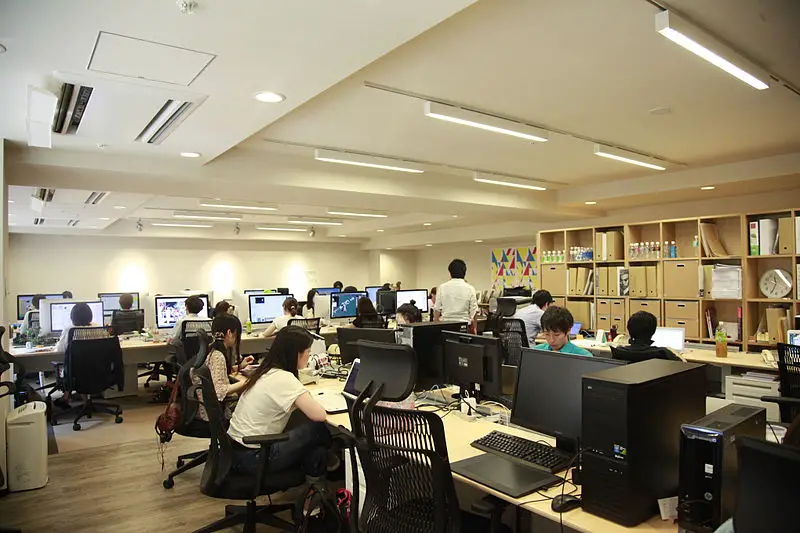
Due to these efforts, the average weekly working hours in Japan are relatively higher compared to many countries in the developed world. The good news is that working conditions are not nearly as bad as they used to be in the 1980s.
Japan working Hours and Productivity
There is no doubt Japan has a dedicated hard-working population. But it’s national productivity is significantly low compared to other G7 nations. According to data from the OECD, Japan has the lowest productivity of any G7 nation. The Japanese Productivity Center also estimates in its 2018 that Japan’s per hour productivity stands at about $46.8. This is significantly less compared to the United States that had per-hour productivity of $74.7 during the same year.

Japan also fell way short of Ireland. The European country has the highest labor productivity in the world. Per hour labor productivity in Ireland stands at $102.3. This is more than double what Japan reported in 2018. Additionally, Japan’s labor productivity is ranked in the bottom 50% of all OECD countries.
But why is Japanese productivity low? After all, this is the third-largest economy on the planet. Japan is also a country associated with very high standards of living. Well, several studies have tried to explain this productivity gap between Japan and other developed G7 nations. But there isn’t any single consensus on the possible cause.
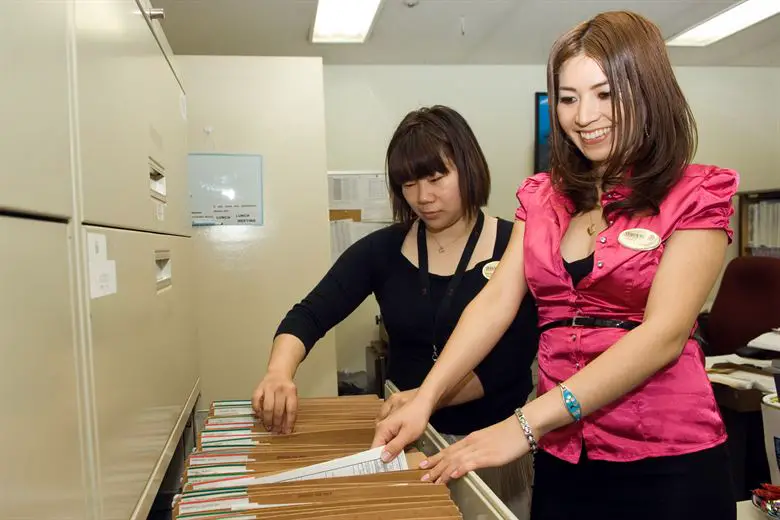
Some studies blame long overtime for low productivity in the country. Others also note that the so-called “workplace reforms” introduced in Japan over the years have negatively affected productivity. For instance, some of these reforms have introduced mandatory paid leaves for employees. They also encourage proper work-life balance to deal with the mental pressure of long working hours. But even with all these reforms, it doesn’t mean people in Japan work less. If anything, they work more than ever before.
Karoshi – Overwork Death in Japan
Hard work and dedication are part of the Japanese work culture. But the strain associated with long hours of work takes its toll on Japanese society. “Karoshi”, a term that loosely translates to “overwork death”, is a unique phenomenon in Japan associated with sudden occupational death. It is in essence a case of people dying due to the stress associated with the work they do. Occupational death or Karoshi is mostly caused by strokes, heart attacks, and even willful starvation.
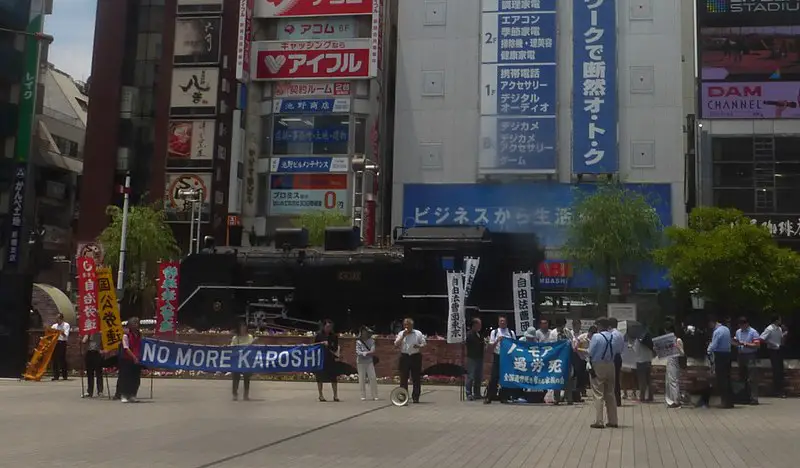
Occupational death was reported in Japan for the first time in 1969. A perfectly healthy 29-year-old male, with no history of previous illness, died of a stroke. He worked for a large local newspaper company. These sudden deaths occurred regularly in the country. But it was until 1978 when the term Karoshi was coined.
Soon after, the term dominated the Japanese public debate. However, the Japanese government focused more on occupational death in the latter parts of the 1980s. This was after top executives in Japanese companies died at work. They were all perfectly healthy people at their prime.
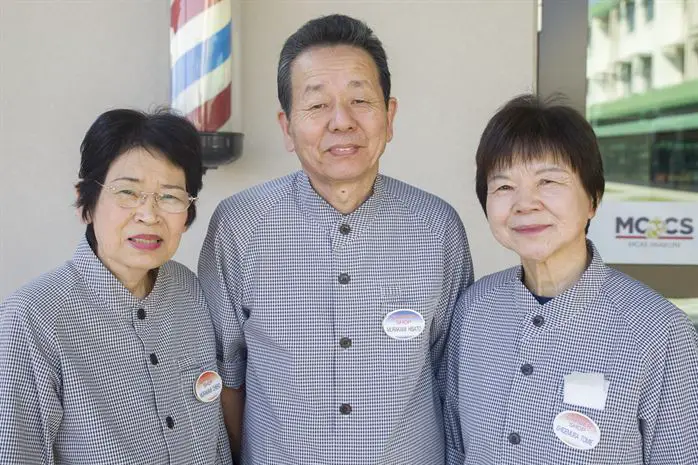
Typical workers in the country put in nearly 60 hours of work per week then. There was no empirical evidence linking occupational death to long working hours then. But it was increasingly clear in Japanese society that something is amiss.
Occupational Death or Karoshi Incidents in Japan
The Japanese Ministry of Labor began recording occupational death statistics in the late 80s. Labor activists, including lawyers and doctors, also established “Karoshi hotlines”. These are emergency telephone lines where Japanese employees call to get help if they feel overwhelmed by work.

There is also another phenomenon in Japan called “karojisatsu”. The term refers to suicides directly caused by the mental stress associated with long working hours.
Between 2009 and 2019, over 24, 000 people died in Japan from suicides directly related to stress at work. Nearly 2000 people died from the same in 2019 alone.
Statista
The government of Japan has instituted various reforms encouraging employers to cut overtime. However, there is no evidence that these measures have reversed occupational death. The mental stress and pressures associated with Japanese work culture were captured in this Yahoo news article. The article features the interview of a real-life Japanese employee who talked about how it feels to work in Japan.
Are Japanese People Happy With Their Work?
Japanese people have a strong work ethic. This dedication has led to immense prosperity in Japan. Japanese corporations continue to dominate global markets all thanks to the hard work of each employee. But this admirable dedication to hard work seems to affect job happiness in the country. According to a Job Happiness Index released by Indeed, Japanese workers are the unhappiest in the developed world.
The report tracks job happiness indicators in 35 relatively developed countries. Interestingly enough, employees consider compensation the least most important factor when they analyze job satisfaction.





